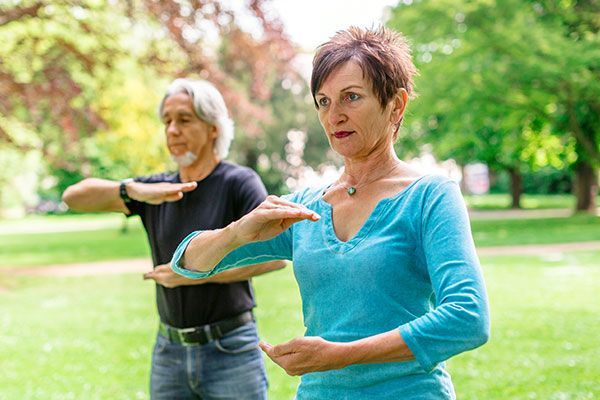Benefits of Tai Chi for Seniors
Are you an older adult that is looking for a new way to stay active with low impact? If you are, tai chi might be your answer!
Tai chi is an ancient form of Chinese exercise that includes slow, measured movements combined with deep breathing.
Originally, tai chi was used for self-defense, however, it is now known for its gentle, controlled stretches where each movement flows into the next one.
While it is a slow-moving and gentle activity, tai chi is considered to be an aerobic exercise. The level of aerobic intensity can be similar to fast walking.
Since this is a low impact exercise, tai chi is safe for people of all ages and is especially appropriate for older adults who may struggle with high-impact exercise. There are also several health benefits of tai chi:
- Relieve physical effects of stress
- Encourages deep breathing
- Reduces bone loss in menopausal women
- Improves lower body and leg strength
- Alleviates arthritis pain
- Reduces blood pressure
- Increase balance and flexibility
- Promotes faster recovery from strokes or heart attacks
- Improves Alzheimer’s, Multiple Sclerosis, and Parkinson’s conditions
Instructional online videos for tai chi are readily available and many community centers offer tai chi classes for older adults. These classes are often free of charge and another benefit of tai chi is that there is no equipment required, so you don’t need to break the bank to get started!
So, if you are looking for a peaceful, low-impact exercise that will get you moving more throughout the day, tai chi may be what you are looking for!












